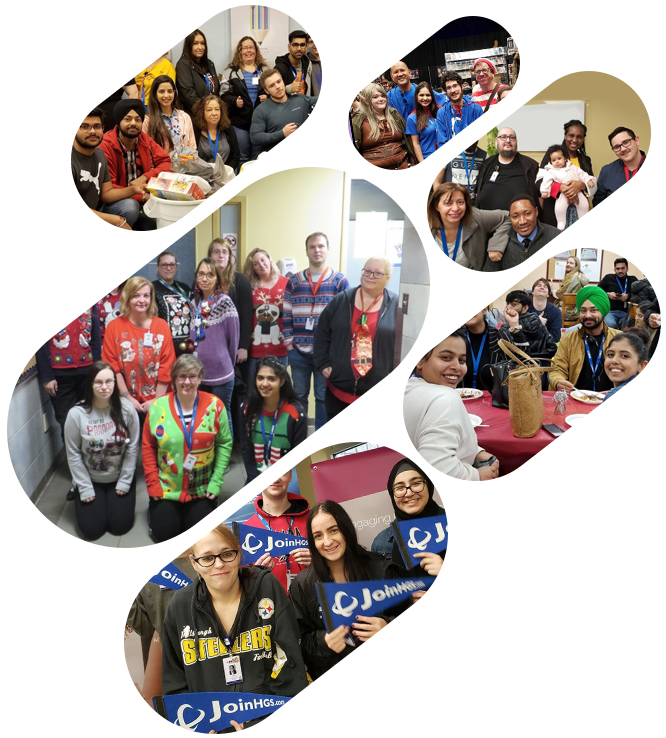
Key Skills and Traits Employers Look For in Entry-level Employees
Here are the seven beginner’s skills for resume for students:
Communication Skills
Strong communication skills are one of the most important entry-level skills for resumes. This encompasses written and verbal communication and the ability to listen and understand information actively. Employers seek candidates who can clearly and concisely express their ideas, ask relevant questions, and provide informative presentations. Effective communication is essential for collaborating with colleagues, following instructions, and representing the company professionally.
How to demonstrate it:
- Tailor your resume and cover letter to each job application, highlighting relevant skills and experiences.
- Practice your interview skills by conducting mock interviews with friends, family, or career advisors.
- Actively participate in group projects and presentations during your studies.
Don’t underestimate the benefits of bilingual skills. In Canada, bilingual (English and French) is valuable for many employers, especially in government or public service roles. If you are bilingual, prominently feature this skill on your resume and cover letter.

Teamwork and Collaboration
Another highly sought-after beginner’s skill for resumes with no experience is the ability to work effectively within a team. Employers value candidates who collaborate with colleagues from diverse backgrounds, share ideas constructively, and work towards a common goal.
How to demonstrate it:
- Highlight your teamwork experience in your resume, focusing on how you successfully collaborated with others to achieve a goal.
- During interviews, discuss past projects where you demonstrated practical teamwork skills.
- Look for opportunities to volunteer or participate in extracurricular activities that involve teamwork.

Problem-Solving Skills
Employers seek candidates who can think critically, analyze situations, and develop creative solutions to problems. Problem-solving skills for CV involve identifying the root cause of an issue, brainstorming potential solutions, and evaluating the best course of action.
How to demonstrate it
- Describe a time you faced a challenge in your academic or personal life and how you used problem-solving skills to overcome it.
- Research common problems encountered in your desired field and discuss potential solutions during interviews.
- Look for opportunities to participate in case competitions or hackathons that test your problem-solving skills.
Technical Skills
While the qualities of a good candidate for a job will vary depending on the position, employers are increasingly seeking candidates with some level of digital literacy. This could include proficiency in:
How to demonstrate it:
- List relevant technical skills in resumes for freshers, highlighting any certifications or courses you've completed.
- If you still need formal training, consider taking online courses or tutorials to develop your technical skillset.
- Highlight any personal projects you've undertaken that demonstrate your technical abilities.

Adaptability and Flexibility
The modern workplace constantly evolves, and employers need employees who can adapt to change. This includes being open to learning new skills, adjusting to new procedures, and embracing new technologies.
How to demonstrate these soft skills for resume for freshers:
- During interviews, express your willingness to learn and take on new challenges.
- Highlight instances where you've adapted to a new environment or situation in the past.
- Include in your resume any experiences you've had adapting to a new environment, such as exchange programs, volunteer work, or other activities.

Work Ethics and Professionalism
Employers value candidates who demonstrate a strong work ethic and a professional demeanour. This includes being reliable and punctual, meeting deadlines, and taking initiative. It also involves dressing appropriately for the workplace, maintaining a positive attitude, and respecting colleagues.
How to demonstrate these beginner’s skills for resume for students:
- Show up on time for interviews and be prepared to answer questions.
- Follow up with thank-you emails after interviews.
- Highlight examples in your resume or cover letter where you consistently exceeded deadlines on projects or assignments.

Initiative and Drive
Employers seek self-motivated candidates who take the initiative and go the extra mile. These entry-level skills to learn include proactively seeking out new challenges, taking ownership of tasks, and demonstrating a genuine interest in learning and growing.
How to demonstrate it:
- In your resume, highlight instances where you took the initiative or exceeded expectations in previous roles (even if unpaid).
- During interviews, express your passion for the industry or role and your desire to learn and contribute.
- Look for opportunities to take on leadership roles in student organizations or volunteer projects.
Conclusion
While securing your first job can feel daunting, remember that employers value more than just technical skills and experience. By focusing on developing the entry-level skills and personal qualities highlighted above, you can increase your chances of landing your dream job in Canada. By showcasing these skills and demonstrating potential as a valuable asset to their team, you'll be well on your way to launching a successful career in Canada!
The global pandemic has led to a significant increase in remote career opportunities. If you’re interested in a work-from-home or flexible work arrangement, explore HGS Canada, which offers tailored options. remote career opportunities.
 Canada
Canada Colombia
Colombia India
India Jamaica
Jamaica Philippines
Philippines UK
UK US
US SA
SA
